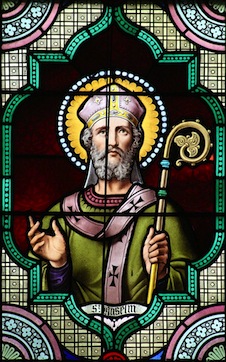SECTION III: How do I know?
Reading 1: from the Proslogion of St. Anselm
Italian by birth (Aosta), Anselm was Archbishop of Canterbury and the first great systematic thinker of the Middle Ages, living 1033-1109. He proposed a “faith seeking understanding,” i.e., a reasoned defense of the principles of Christian theology, not as a substitute for faith or theology, but as a supplement to it. It makes sense, on Anselm's view, to think that God would grant rational beings the capacity to understand him, his ways, prove his existence, etc. Anselm's two principal works are the Monologion, demonstrating the existence of God by appeal to his being the standard of absolute goodness, and the Proslogion: demonstrating the existence of God by appeal to the concept of God. Anselm was canonized (made a saint) in 1494. Click Here for the Reading File in .pdf format.
|
|
"So truly, therefore, dost thou exist, O Lord, my God, that thou canst not be conceived not to exist; and rightly. For, if a mind could conceive of a being better than thee, the creature would rise above the Creator; and this is most absurd." |
19th Century English Stained Glass
|
What does it mean, logically, to designate something "absurd"? |
|
Go on to Aquinas. |
|
Go back to Knowledge page. |
|

